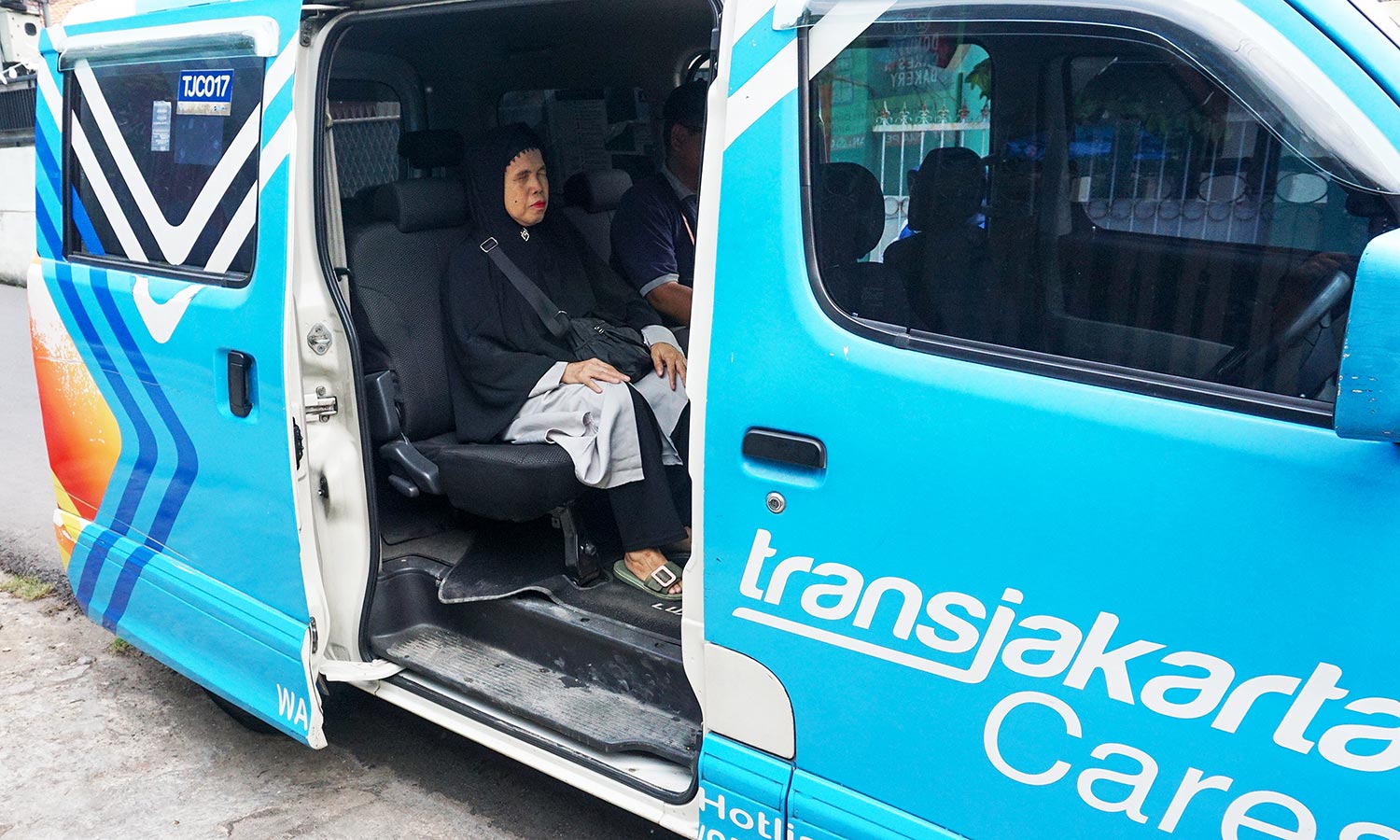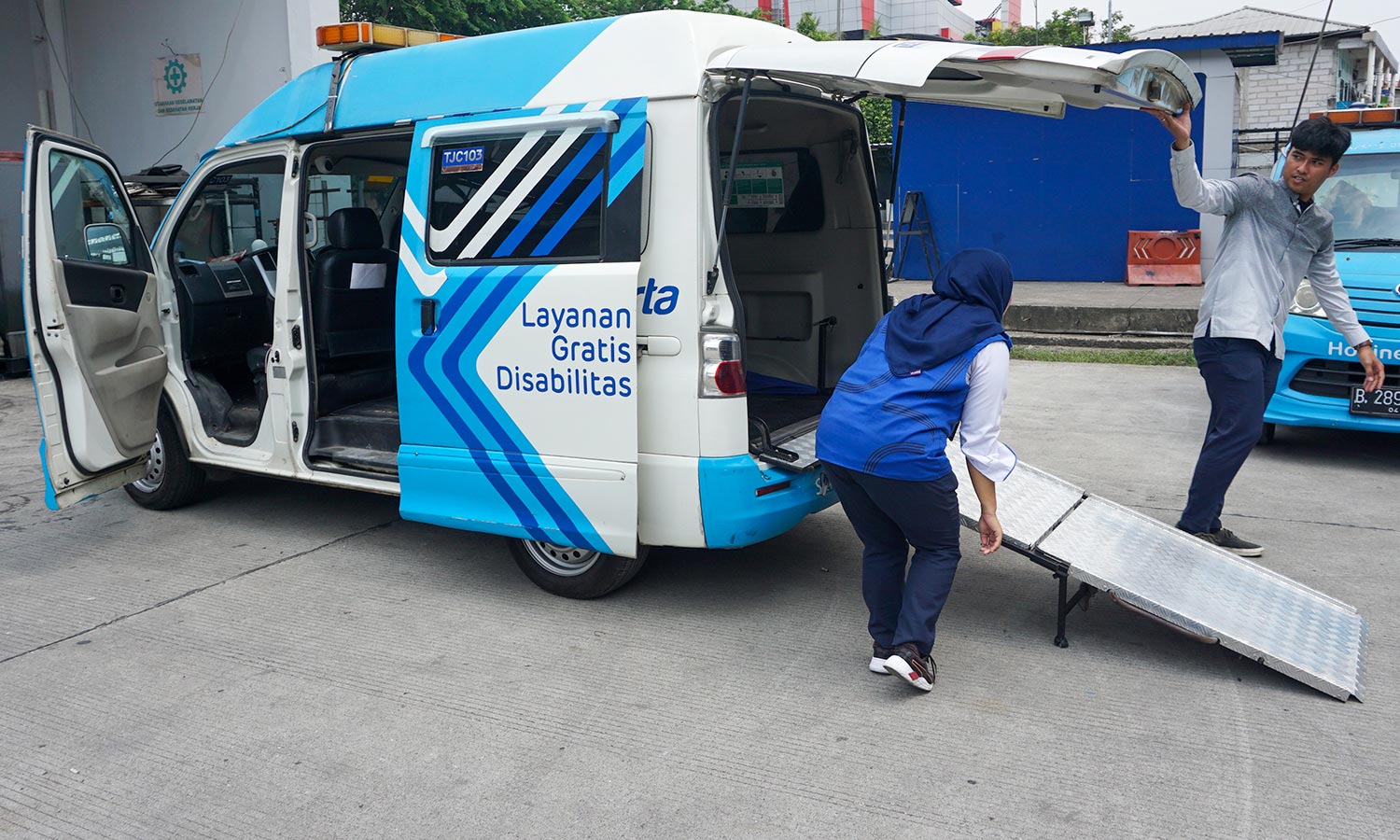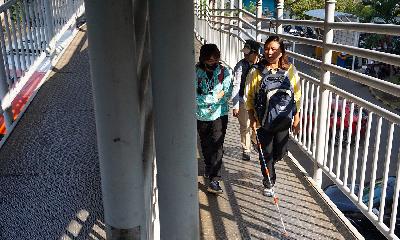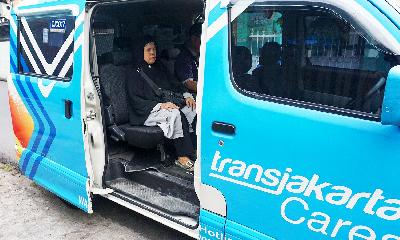How Differently-Abled People Monitored the Drafting of a Jakarta Bylaw
Monday, October 14, 2024
Jakarta's regulations were considered as failing to fulfill the aspirations of differently-abled people
arsip tempo : 174668012019.

FATUM Ade, Coordinator of the Mental Health Association’s advocacy team, asked the Jakarta City Council’s (DPRD) secretariat almost every day about the deliberations on the Jakarta bylaw concerning the Implementation of Respect, Protection and Fulfillment of the Rights of People with Disabilities.
She also invited DPRD members to discuss this regulation to ensure that their aspirations were communicated and realized. “We visited the DPRD secretariat so often that we were asked, ‘Don’t you have another job?’” Dhede, as Fatum Ade is known, told Tempo on Monday, September 30.
Dhede represents a social organization for people with mental disabilities. Alongside her team, representatives from organizations for individuals with visual, hearing, and physical disabilities also monitored the proposed law until its passage in 2020. “Around 20 organizations were involved,” said Dhede.
This bylaw was crucial for differently-abled people, as it addressed technical issues mandated by the People with Disabilities Law and included provisions related to their livelihoods, such as access to public transportation.
Dhede said that social organizations for people with disabilities had been involved since 2021. She and her colleagues diligently attended the Jakarta DPRD meetings, often watching from the balcony alongside other observers. One key provision they championed was related to concessions for people with disabilities.
Under this regulation, a concession is a form of cost reduction granted by regional governments to people with disabilities. Article 103 of the bylaw grants people with disabilities in Jakarta the right to reduce costs for public transportation, water supplies, house rentals, tickets to recreational destinations, and parking fees. “Concessions provide social protection for people with disabilities, as they often face additional costs due to their circumstances,” Dhede explained.
She is particularly grateful that after the law was passed, the Jakarta government introduced the Transjakarta Cares program, which provides free, specially equipped vehicles to transport people with disabilities to Transjakarta bus stops. Users can request this service when planning to use Transjakarta buses.

Transjakarta Cares service car for differently-abled users in Cawang, Jakarta, October 4, 2024. TEMPO/Ilham Balindra
However, Dhede noted some challenges with the Transjakarta Cares service, including the requirement to book the service a day in advance and the limited number of available vehicles. “But despite these challenges, I think this bylaw is one of the best, and I appreciate the efforts of the provincial government and DPRD members for being quite open during the drafting process,” she said.
Dhede believes that similar bylaws in other regions lack the level of detail seen in Jakarta’s regulation. She said other regional regulations often seem to merely copy the People with Disabilities Law. “I compared the Jakarta bylaw with those from other regions, and the Jakarta regulation is much more detailed and practical, so it is feasible to implement. Other regions lack this level of detail,” she added.
Fajri Nursyamsi, Deputy Executive Director of the Center for the Study of Law and Policy, agrees that the Jakarta bylaw offers strong protections for people with disabilities, particularly regarding budgeting. “This regulation covers budget-related aspects comprehensively and includes provisions for auditing and incentives,” he said.
Fajri emphasized the need for the swift enactment of a proposed gubernatorial regulation on people with disabilities, which is still under deliberation. A more specific regulation, he said, would allocate responsibilities to different government agencies, as currently, only the social services agency handles these matters. “Issues affecting people with disabilities are broad and diverse, from access to education and transportation to health care,” he noted.
He also urged other regional governments to adopt similar regulations to better address the needs of people with disabilities. “Each region must understand the unique challenges faced by people with disabilities in their respective areas,” Fajri said.
Additionally, he suggested that the Jakarta government collaborate with neighboring regions such as Depok, Bogor, Tangerang, and Bekasi to extend inclusive public transport system like Transjakarta Cares to their residents.
Nirwono Yoga, Executive Director of the Center for Urban Studies, stressed that people with disabilities have the right to equal service as other citizens. “It’s the government’s responsibility to provide them with the necessary support so they can live independently,” he said.
Nirwono expressed hope that even in regions without specific regulations concerning people with disabilities, local governments would still work toward creating inclusive cities. “I dream that all regional governments can create cities that are friendly to people with disabilities,” he concluded.











